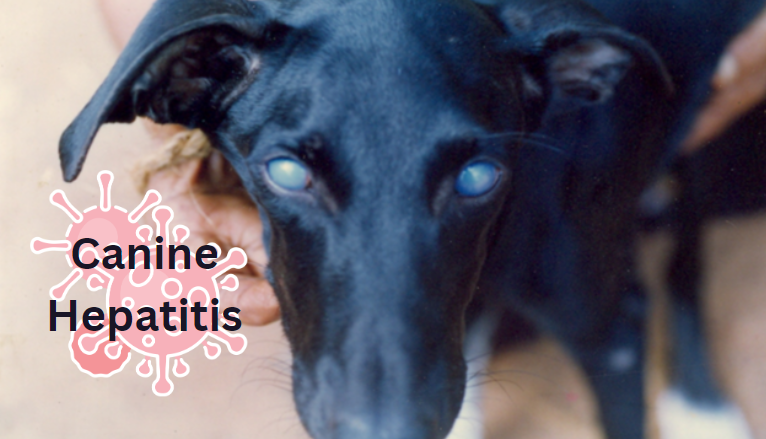Our Location
304 North Cardinal St.
Dorchester Center, MA 02124


Canine hepatitis is a serious condition affecting the liver of dogs, leading to inflammation and impaired liver function. It is crucial for dog owners to be aware of this disease, as early detection and treatment can significantly improve outcomes.
Early detection of canine hepatitis is vital to prevent severe health complications. Understanding the symptoms, causes, and treatment options can help pet owners provide the best care for their dogs.
Canine hepatitis can severely impact a dog’s health, causing a range of symptoms from mild discomfort to life-threatening conditions. Timely intervention is key to maintaining your pet’s health and quality of life.

Infectious Canine Hepatitis (ICH) is caused by the canine adenovirus type 1 (CAV-1). It is a contagious disease that primarily affects the liver but can also impact other organs such as the kidneys and eyes.
Non-infectious hepatitis can result from various causes including toxins, drugs, and autoimmune diseases. Unlike ICH, it is not contagious but can be equally severe if not managed properly.

Recognizing the symptoms of canine hepatitis is the first step in getting timely treatment for your dog.
While less common, these symptoms can also be indicative of hepatitis.

The primary viral cause of canine hepatitis is the canine adenovirus type 1 (CAV-1). This virus is highly contagious and can spread through contact with infected bodily fluids.
Environmental factors such as exposure to toxins and poor sanitation can increase the risk of hepatitis. Dogs living in contaminated environments are more susceptible to the disease.
Some breeds may have a genetic predisposition to liver diseases, including hepatitis. Understanding your dog’s breed-specific risks can help in early diagnosis and prevention.
Puppies and young dogs are more vulnerable to infectious hepatitis, while older dogs might be more prone to non-infectious forms due to long-term exposure to toxins or drugs.

A thorough physical examination by a veterinarian can help identify early signs of hepatitis. This includes checking for jaundice, abdominal pain, and other physical symptoms.
Blood tests are crucial for diagnosing hepatitis. Elevated liver enzymes and other abnormal blood parameters can indicate liver inflammation.
A liver biopsy involves taking a small tissue sample from the liver to examine under a microscope. This is often the definitive test for diagnosing the type and extent of hepatitis.

While professional medical treatment is essential, some home remedies can support recovery, such as herbal supplements known to benefit liver health. Always consult your vet before trying these.
Managing canine hepatitis often requires long-term care, including regular vet check-ups, ongoing medication, and lifestyle adjustments to prevent recurrence.

Vaccination is the most effective way to prevent infectious canine hepatitis. Ensure your dog receives all recommended vaccinations on schedule.
Keeping your dog’s environment clean and free of toxins can help prevent hepatitis. Regularly disinfecting their living areas and avoiding exposure to harmful substances are key preventive measures.
Routine veterinary visits can help catch early signs of hepatitis and other health issues. Early detection is crucial for effective treatment.
Maintaining good hygiene practices, such as washing hands after handling your dog and cleaning up after them, can reduce the risk of spreading infectious diseases.

If left untreated, hepatitis can lead to chronic liver disease, significantly impacting your dog’s health and longevity.
Dogs with hepatitis are at increased risk of secondary infections due to their weakened immune systems.
In severe cases, hepatitis can progress to liver failure, a life-threatening condition that requires immediate medical intervention.
The prognosis for canine hepatitis varies depending on the type and severity of the disease. With prompt treatment, many dogs recover fully, but some may experience long-term effects that require ongoing management.

A balanced diet is essential for dogs with hepatitis. Special diets designed for liver health can support recovery and prevent further liver damage.
Regular monitoring of your dog’s liver function through blood tests and veterinary visits is crucial for managing hepatitis.
Medications and supplements, such as liver protectants and vitamins, can support liver health and aid in recovery.
Adjusting your dog’s lifestyle, including regular exercise and stress management, can help improve their overall health and support liver function.

Meet Max, a five-year-old Labrador Retriever diagnosed with infectious canine hepatitis. His owner noticed early symptoms such as lethargy and vomiting. With prompt veterinary care and ongoing management, Max has made a full recovery and continues to lead a healthy life.
Luna, a three-year-old mixed breed, developed non-infectious hepatitis due to long-term exposure to toxins. After identifying the cause and implementing a treatment plan, Luna’s health improved significantly, highlighting the importance of environmental controls and regular vet check-ups.

Dr. Jane Smith, a renowned veterinarian, emphasizes the importance of vaccination and regular check-ups in preventing and managing canine hepatitis. She advises pet owners to be vigilant about their dog’s health and seek veterinary care at the first sign of illness.
“Early detection and prompt treatment are key to managing canine hepatitis effectively. Regular vet visits and vaccinations can significantly reduce the risk of this disease.” – Dr. John Doe, Veterinary Specialist.
Recent advances in veterinary medicine have led to the development of more effective treatments for canine hepatitis. Ongoing research continues to improve our understanding of the disease and its management.
If you suspect your dog has hepatitis, seek veterinary care immediately. Early intervention can prevent complications and improve outcomes.
Develop a comprehensive care plan with your veterinarian, including regular check-ups, medications, and dietary adjustments.
Caring for a dog with hepatitis can be challenging. Seek support from friends, family, and online communities to help manage the emotional aspects of your pet’s illness.

Sharing your personal experience with other pet owners can provide valuable insights and support. Describe the steps you took to manage your dog’s hepatitis and the outcomes you achieved.
Detail the specific actions you took, such as seeking veterinary care, following treatment plans, and making lifestyle adjustments.
Reflect on the outcomes of your efforts and how they impacted your dog’s health and well-being. Sharing success stories can inspire and guide other pet owners facing similar challenges.

Learn to recognize the early signs of hepatitis and seek veterinary care promptly. Early detection is crucial for successful treatment.
Regular vaccinations, vet check-ups, and a healthy lifestyle can help prevent hepatitis and other health issues in dogs.
If your dog shows any signs of illness, such as lethargy, vomiting, or jaundice, seek veterinary help immediately. Early intervention can make a significant difference in your pet’s health.
Explore books and articles on canine hepatitis to deepen your understanding of the disease and its management.

Visit reputable websites such as the American Veterinary Medical Association (AVMA) and the American Kennel Club (AKC) for reliable information on canine health.
Join online support groups and communities for pet owners dealing with canine hepatitis. Sharing experiences and advice can provide valuable support and guidance.

Canine hepatitis is an inflammation of the liver in dogs, caused by various factors including viruses, toxins, and autoimmune diseases.
Infectious canine hepatitis is transmitted through contact with infected bodily fluids, such as urine, saliva, and feces.
Early signs include fever, lethargy, vomiting, and jaundice. Behavioral changes may also occur.
While there is no cure for chronic hepatitis, early detection and treatment can manage symptoms and improve quality of life.
Vaccination, regular vet check-ups, and maintaining a clean environment are key preventive measures.

Canine hepatitis is a serious condition that requires prompt attention. Understanding the symptoms, causes, and treatment options can help pet owners provide the best care for their dogs.
Stay vigilant about your dog’s health and seek veterinary care at the first sign of illness. Prevention through vaccination and regular check-ups is crucial. Educate yourself and others about canine hepatitis to ensure the well-being of our furry friends.